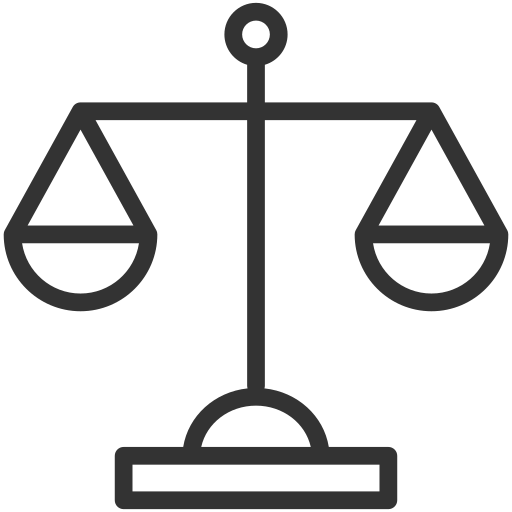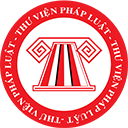|
BỘ TÀI CHÍNH |
CỘNG HÒA XÃ HỘI
CHỦ NGHĨA VIỆT NAM |
|
Số: 10248/TCHQ-GSQL |
Hà Nội, ngày 15 tháng 08 năm 2014 |
Kính gửi: Cục Hải quan các tỉnh, thành phố
Trên cơ sở nội dung thông báo tại công văn số 7024/BCT-XNK ngày 25/7/2014 của Bộ Công Thương, Tổng cục Hải quan hướng dẫn thực hiện kiểm tra C/O mẫu AJ sửa đổi do các nước ASEAN cấp như sau:
1. Ghi trị giá FOB: việc ghi trị giá FOB trên C/O mẫu AJ do các nước ASEAN cấp từ ngày 1/10/2014 được quy định:
- Chỉ bắt buộc ghi trị giá FOB trên C/O mẫu AJ do các nước ASEAN cấp đối với những mặt hàng áp dụng tiêu chí xuất xứ hàm lượng giá trị khu vực (RVC).
- Riêng các C/O mẫu AJ do các nước ASEAN cấp cho hàng xuất khẩu sang Campuchia/Myanmar, và các C/O mẫu AJ do Campuchia/Myanmar cấp vẫn ghi trị giá FOB cho mọi trường hợp áp dụng tất cả các tiêu chí xuất xứ cho đến hết ngày 30/9/2016.
2. Việc sử dụng C/O mẫu AJ hiện hành và C/O mẫu AJ sửa đổi:
- Chấp nhận cả C/O mẫu AJ sửa đổi nêu trên (gửi kèm công văn) và C/O mẫu AJ hiện hành do các nước ASEAN cấp từ ngày 1/10/2014 đến hết ngày 31/3/2015. Đối với các C/O được cấp từ ngày 1/4/2015, chỉ chấp nhận C/O mẫu AJ sửa đổi, C/O mẫu AJ hiện hành do các nước ASEAN cấp sẽ không còn giá trị sử dụng.
- Campuchia và Myanmar vẫn duy trì việc cấp C/O mẫu AJ hiện hành đến hết ngày 30/9/2016. Các C/O mẫu AJ do các nước ASEAN cấp cho hàng xuất khẩu sang Campuchia/Myanmar vẫn ghi trị giá FOB đến hết ngày 30/9/2016.
Tổng cục Hải quan thông báo để các đơn vị biết và thực hiện.
(Gửi kèm C/O mẫu AJ sửa đổi)
|
Nơi nhận: |
KT. TỔNG CỤC
TRƯỞNG |
Original (Duplicate/Triplicate)
|
1. Goods consigned from (Exporter's name, address, country)
|
Reference No. THE AGREEMENT ON COMPREHENSIVE ECONOMIC PARTNERSHIP AMONG MEMBER STATES OF THE ASSOCIATION OF SOUTHEAST ASIAN NATIONS AND JAPAN (AJCEP AGREEMENT) CERTIFICATE OF ORIGIN
|
|||||||||||
|
2. Goods consigned to (Importer's/Consignee's name, address, country) |
||||||||||||
|
3. Means of transport and route (as far as known) Shipment date
Vessel's name/ Aircraft etc.
Port of discharge
|
4. For Official Use |
|||||||||||
|
□ |
Preferential Treatment Given Under AJCEP Agreement |
|||||||||||
|
□ |
Preferential Treatment Not Given (Please state reason/s) |
|||||||||||
|
...................................................... |
||||||||||||
|
5. Item number |
6. Marks and numbers of packages |
7. Number and type of packages, description of goods (including quantity where appropriate and HS number of the importing Party) |
8. Origin criteria (see Notes overleaf) |
9. Gross weight or other quantity and value (FOB only when RVC criterion is used) |
10. Number and date of invoices |
|||||||
|
|
|
|
|
|
|
|||||||
|
11. Declaration by the exporter The undersigned hereby declares that the above details and statements are correct; that all the goods were produced in ......................................... and that they comply with the requirements specified for these goods in the AJCEP Agreement for the goods exported to ............................................... .......................................... |
12. Certification It is hereby certified, on the basis of control carried out, that the declaration by the exporter is correct.
|
|||||||||||
|
13. □ Thrid Country Invoicing |
□ Back-to-Back CO |
□ Issued Retroactively |
||||||||||
|
|
|
|
|
|
|
|
|
|
|
|||
NOTES
1. The following countries shall use this form for the purpose of preferential tariff treatment under the Agreement on Comprehensive Economic Partnership among Member States of the Association of Southeast Asian Nations and Japan (AJCEP Agreement):
|
BRUNEI DARUSSALAM MYANMAR |
CAMBODIA PHILIPPINES |
INDONESIA SINGAPORE |
LAOS THAILAND |
MALAYSIA VIETNAM |
2. CONDITIONS: To enjoy preferential tariff treatment under the AJCEP Agreement, goods exported to any of the Parties to the AJCEP Agreement should:
(i) fall within a description of goods eligible for concessions in the importing Party;
(ii) comply with the consignment conditions in accordance with Article 31 of the AJCEP Agreement; and
(iii) comply with the origin criteria in Chapter 3 of the AJCEP Agreement.
3. ORIGIN CRITERIA: For goods that meet the origin criteria, the exporter should indicate in box 8 of this Form, the origin criteria met, in the manner shown in the following table:
|
Circumstances of production or manufacture in the first country named in box 11 of this form: |
Insert in box 8 |
|
(a) Goods satisfying subparagraph (c) of Article 24 of the AJCEP Agreement |
“PE” |
|
(b) Wholly obtained goods satisfying Article 25 of the AJCEP Agreement |
“WO” |
|
(c) Goods satisfying paragraph 1 of Article 26 of the AJCEP Agreement |
“CTH” or |
|
(d) Goods satisfying paragraph 2 of Article 26 of the AJCEP Agreement - Change in Tariff Classification - Regional Value Content - Specific Processes |
“CTC” “RVC” “SP” |
|
Also, exporters should indicate the following where applicable: |
|
|
(e) Goods which comply with Article 28 of the AJCEP Agreement |
“DMI” |
|
(f) Goods which comply with Article 29 of the AJCEP Agreement |
“ACU” |
4. EACH ITEM SHOULD QUALIFY: All items in a consignment should qualify separately in their own right. This is of particular relevance when similar items of different sizes are exported.
5. DESCRIPTION OF GOODS: For each good, the HS tariff classification number of the importing Party should be indicated at the six-digit level. The description of the good on a certificate of origin should be substantially identical to the description on the invoice and, if possible, to the description under the HS for the good. With respect to subheading 2208.90 and 9404.90, in an exceptional case where the good is a specific product requiring a special description (e.g. “sake compound and cooking sake (Mirin) of subheading 2208.90", “beverages with a basis of fruit, of an alcoholic strength by volume of less than 1% of subheading 2208.90" “quilts and eiderdowns of 9404.90”), such description of specific products should be indicated.
6. FREE-ON-BOARD (FOB) VALUE: The FOB value in Box 9 shall be reflected only when the Regional Value Content criterion is applied in determining the origin of goods. In the case of goods exported from and imported by Cambodia and Myanmar, the FOB: value shall be included on the Certificate of Origin, irrespective of the origin, criteria used, for 2 years upon the implementation of this new arrangement.
7. INVOICES: Indicate the invoice number and date for each item. The invoice should be the one issued for the importation of the good into the importing Party.
8. THIRD COUNTRY INVOICING: In cases where invoices are issued by a third country, in accordance with Rule 3 (d) of Implementing Regulations, the “Third Country Invoicing" box in box 13 should be ticked (√). The number of invoices issued for the importation of goods into the importing Party should be indicated in box 10, and the full legal name and address of the company or person that issued the invoices shall be indicated in box 7.
In an exceptional case where the invoice issued in a third country is not available at the time of issuance of the certificate of origin, the invoice number and the date of the invoice issued by the exporter to whom the certificate of origin is issued should be indicated in box 10. The “Third Country Invoicing" in box 13 should be ticked, and it should be indicated in box 7 that the goods will be subject to another invoice to be issued in a third country for the importation into the importing Party, identifying in box 7 the full legal name and address of the company or person that will issue another invoice in the third country. In such a case, the customs authority of the importing Party may require the importer to provide the invoices and any other relevant documents which confirm the transaction from the exporting Party to the importing Party, with regard to the goods declared for import.
9. BACK-TO-BACK CERTIFICATE OF ORIGIN: In the case of a back-to-back CO issued in accordance with paragraph 4 of Rule 3 of the Operational Certification Procedures, the “Back-to-Back CO” box in box 13 should be ticked (√).
10. ISSUED RETROACTIVELY: In cases of a CO issued retroactively in accordance with Rule 7 of the Implementing Regulations, the “Issued Retroactively” box in box 13 should be ticked (√).
11. CERTIFIED TRUE COPY: In cases of certified true copies, the words “CERTIFIED TRUE COPY” should be indicated in box 12 in accordance with Rule 5 of the Implementing Regulations.



















